
“I Chose Kazan Because it is Where Lenin and Tolstoy Studied”
/ Главная / Russkiy Mir Foundation / Publications / “I Chose Kazan Because it is Where Lenin and Tolstoy Studied”“I Chose Kazan Because it is Where Lenin and Tolstoy Studied”
In recent years, Russia has been becoming a more and more attractive country for those seeking a higher education. In the past academic year alone, the number of foreign student in Russian institutions of higher education rose by almost 10%, and their number has increased 1.5 times since 2010. In their responses, the students themselves tell us about how they liked living and learning in Russia.
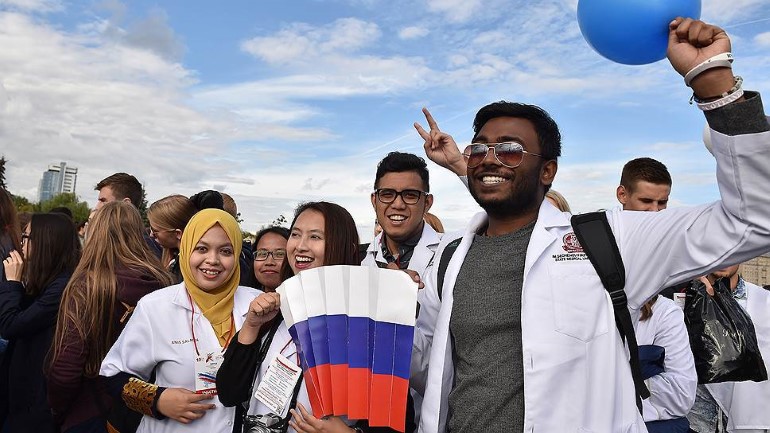
Students from developing countries come to study in Russia, as do students from developed countries, like Spain, France, Australia, and so forth. During the 2016-2017 academic year alone, the influx of European students to Russian universities jumped up by 40%. And they aren’t only going to the renowned universities in Moscow and Petersburg—today regional universities have also started competing for foreign students, offering them high-quality academic programs. Two thirds of the foreign students studying in Russia go to areas outside Moscow and Petersburg.
It appears that the reputation of Russian higher education is once again winning trust all across the world (though in many countries its reputation was always strong). Russia has reestablished its position on the international education market, and this is entirely explainable. Besides a good education and decent living conditions, Russia also has other competitive advantages: it is a totally safe and quite inexpensive country for education and living.
In their responses about their studies and lives in Russia, foreign students remember fondly the warm-heartedness of their Russian acquaintances, give high marks to the quality of education at Russian universities, and also give advice on how one should prepare to visit our country.
Prepared from materials on the StudyInRussia website.
See also: Studying in Russia: More and More Foreign Students Are Choosing Russian Schools
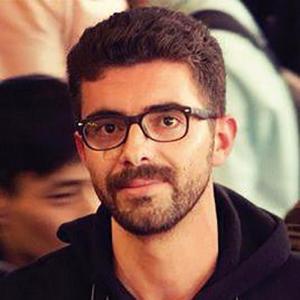 “I see myself in the future as an authoritative expert in the field of nuclear physics.”
“I see myself in the future as an authoritative expert in the field of nuclear physics.”
Abu-Ghazel Aiman Ahed, Jordan
National Research Nuclear University MEPhI (Moscow Engineering Physics Institute)
– What did I learn at MEPhI? That I need to study a lot in order to truly possess knowledge. Grades are not as important as the knowledge that you gain.
MEPhI is the leader in the field of training nuclear physicists. After graduating university, I see myself as an authoritative expert in this sphere. I recommend everyone apply to MEPhI.
What’s more, the university has comfortable dorms, and the staff are very well-disposed to foreign students.
And during my studies at MEPhI I also learned to help others. I am a member of an international club MEPhI and participate in the organization of various festivals. I also teach Arabic language courses for anyone who is interested. In 2015, I received the “Activist of the Year” award for my work in the field of student autonomy.
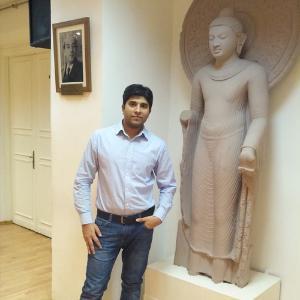 “I could have studied in German, but I chose Russia”
“I could have studied in German, but I chose Russia”
Ovais Kadir, Pakistan
National University of Science and Technology "MISiS”
– My name is Ovais Kadir. I was born in a small town in Pakistan. In my country, I completed a bachelor’s program at the University of the Punjab—the largest and oldest university in South Asia. I had the opportunity to receive a master’s degree in Germany or Thailand, but I chose “MISiS.”
The laboratories here are wonderfully well equipped for first-rate experiments. I work with composite materials, which are widely used in auto- and aerospace manufacturing. My department has everything that I need—equipment, laboratory machines, and so forth.
I also like that students from various countries live in a single dorm room. We can interact with each other and share impressions, thoughts, and ideas. This helps you understand how people living in other areas understand the world. This is useful for one’s education—what’s more, it brings us together.
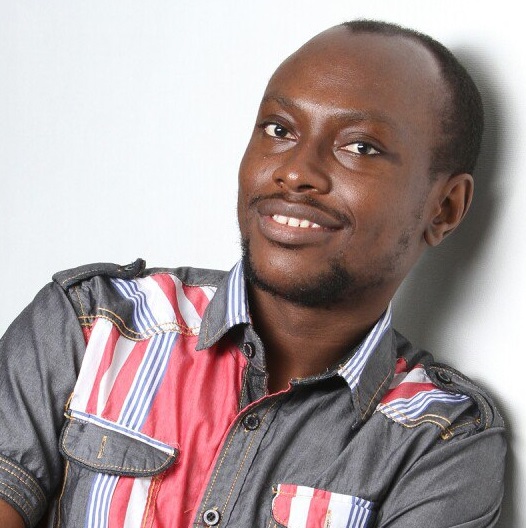 “In Russia, you can gain in-depth knowledge about the petroleum industry.”
“In Russia, you can gain in-depth knowledge about the petroleum industry.”
Aggrey Kony, Tanzania
Novosibirsk State University (NSU)
– My name is Aggrey. I’m from Tanzania. I study in the second year of master’s program in the economics department of NSU, in their “Management in the Petroleum Sector” program. I will graduate soon.
Students at Novosibirsk State University have many opportunities to develop. What’s more, Russia is one of the leading countries in the world in oil extraction, so you can gain in-depth knowledge here about the petroleum industry.
Of course, Siberia is very cold in the winter, but I have been warmed by the kindness and generosity of the Siberian people. What’s more, I can now speak a little Russian and feel differently here.
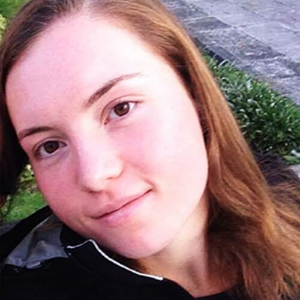 “Everyone I’ve met was happy to help and interact with foreigners”
“Everyone I’ve met was happy to help and interact with foreigners”
Alexandra France, Australia
Petrozavodsk State University
– I received all the necessary information before my arrival. I didn’t encounter any difficulties when I came over to Russia. At first, it was difficult for me to get used to it being cold here, with little sun. Students might be advised to take warm clothing and appropriate footwear with them. I liked my Russian language courses a lot. I wouldn’t want to change anything.
In Australia, I attended Russian language classes that were conducted in English. Here, the instruction was in Russian, so it was difficult for me to understand what was going on, but only for the first week. On the whole, I was happy with the living conditions. But future students should understand: Petrozavodsk doesn’t have all the comforts that you’ve gotten used to at home. Though it is a very pleasant, safe, and quiet city. Everyone I’ve met was happy to help and interact with foreigners. Petrozavodsk State University is an excellent university, with students interested in their education and responsive staff. The instructors are considerate, patient, responsive, and intelligent. They are true professionals. I enjoyed my stay in Petrozavodsk, and the courses helped me a lot in learning Russian. Too bad I could only stay for a month. I hope to return here in the future!
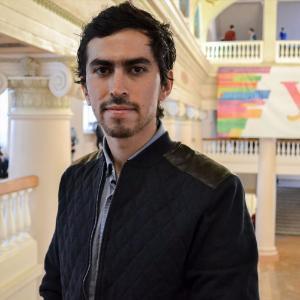 “I felt at home in Russia”
“I felt at home in Russia”
Alejandro Heinz, Mexico
Ural Federal University named after the first President of Russia B. N. Yeltsin
– My name is Alejandro Heinz. I’m 25 years old, and I’m from Mexico. When my university, where I study management and marketing, offered me a trip to Russia, I agreed without thinking, and I don’t regret it at all.
Right away I started remembering everything I knew about Russia since childhood. For instance, the famous “kazachok” dance. When I was 11 years old and studied in elementary school, we performed that dance in red costumes with Cossack hats. At the time, I never would have thought that 14 years later I would be studying in this wonderful country.
What else do I know about Russia? Garry Kasparov. This name is a synonym of the word “chess,” and chess is one of my favorite games. It always reminds me of Russia. And also—everything that they show in Russian films about famous Russian mathematicians, scholars, and pilots, is entirely true.
Of course, the first thing that comes to mind when you hear about Russia is the cold. The climate really did turn out to be much colder than I expected, but I was surprised how warm it was inside buildings! And I also found out how warm and friendly Russians’ attitude toward foreigners could be. I really did feel at home. Yekaterinburg is a remarkable city for gaining international experience and a great many pleasant impressions.
The courses that I picked turned out to be incredibly helpful and interesting. I studied Internet business, and also the Russian language in order to learn more about the culture. At first it was difficult, but Russian is very interesting to study, and I’m certain that I’ll continue my studies.
Studying in Russia was an outstanding experience for me. I was surrounded by wonderful, kind people, I visited many of the most beautiful places in Yekaterinburg and its environs, I made trips to Moscow and Saint-Petersburg. It was simply stunning!
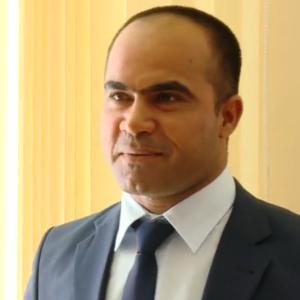 “The Russian people are very kind”
“The Russian people are very kind”
Al-Saedi Salah, Iraq
South Ural State University (National Research University)
– Before I visited Russia for the first time, I didn’t know anything about this country. I came in 2012 as part of an agreement between the Russian and Iraqi governments and started taking Russian language courses. Then I entered a master’s program at South Ural State University and successfully graduated in 2015.
Together with my adviser, Bulat Fatkulin, I wrote a thesis on the topic “A Comparative Analysis of Word-Forming Categories in Russian and Arabic for the Purpose of Translation.” Upon completing my studies, I graduated with honors.
I’m very grateful to all my instructors. While I was living in Russia, I felt like a Russian citizen because Russian people are very kind. I lived in Chelyabinsk. I love this beautiful city. I’m very grateful to all the people who live in that city. I send all my Russian friends the very best wishes and my gratitude to the university staff for their understanding and assistance while I was living in Russia. In the near future, I plan to enroll in a graduate program in linguistics.
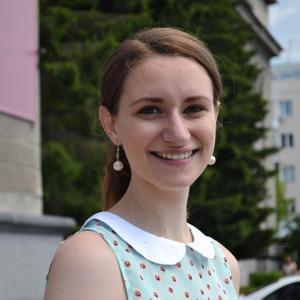 “Russian Culture is unique and interesting to study.”
“Russian Culture is unique and interesting to study.”
Anael Durand, France
Ural Federal University named after the first President of Russia B. N. Yeltsin
– My name is Anael Durand. I’m from France and I simply adore learning new things about different cultures: traveling, meeting people, trying new dishes, listening to national music.
At Ural Federal University (UrFU), I studied in the first year of a master’s program with a “History” concentration as part of an exchange program with University of Rennes 2 in Upper Brittany.
We studied the Russian Empire and the Soviet Union, as well as research methodology. I’m writing a master’s dissertation on the return of Russian emigrants from China after the Second World War, and I’ve learned a lot from conversations with locals who were affected by these events in one way or another.
What I liked must at UrFU was the warm and friendly atmosphere. Sometimes it was difficult to make sense of certain documents, but wherever I turned—to the administrative office, international services, or the library—people were happy to help me out. In the history department, where I studied, students and teachers freely exchange opinions and ideas. It is a very dynamic atmosphere for research. They often host lectures by foreign professors.
I started learning the Russian language six years ago. Everything that I knew about this country before coming here was gleaned from these classes, the news, and my interest in history. During my studies in advanced classes, I also had the chance to spend some time in Moscow, and I madly wanted to return to Russia again.
When I was told that my application was approved and I would be studying in Yekaterinburg, I was happy and frightened all at once. I understood that I would have to deny myself my European lifestyle, feared culture shock, and doubted that I could get used to the Russian winter! But after spending just a few weeks in Yekaterinburg, I realized that I was gaining an outstanding experience of interacting with Russian and foreign students.
My impressions of Russians: they are sincere, natural, real. They know how to make it so that their guests feel comfortable. Russian culture is unique. It isn’t always understood abroad, and so it is very interesting to study it alongside Russians living their daily lives. I also noticed that the people here always actively celebrate civic and religious holidays, and they are generally very patriotic.
By the way, traveling alone across Russia by train is an uncommon adventure. The atmosphere on long journeys very much disposes one to interact with new people, and I really like that.
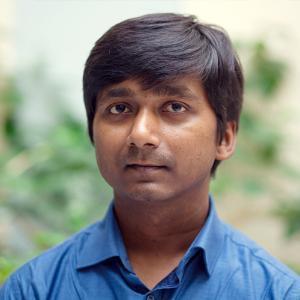 “Any experience that I can get in Russia is important to me”
“Any experience that I can get in Russia is important to me”
Banerji Soumen, India
Saint Petersburg National Research University for Information Technologies, Mechanics, and Optics (ITMO University)
– When I was in India thinking about studying abroad, I was choosing between Germany and Russia. I wanted to study at a large university and learned that ITMO University is the largest and best institution in its field. I read the information on its Facebook page. I liked the people and the efforts they were making. You could say that ITMO University captivated me.
I have already started my research. I think I will be successful. I want to become a famous person, someone who did something important.
In my own country, I work as a programmer and have made a large number of websites. But everything that I’ve got used to in India looks totally different here. Maybe I’ll exchange my research activities for a good job. Any experience that I can get here is important to me..
Compared to India, it’s very cold in Russia. It might seem strange, but I wanted to experience the Russian colds for myself. I like Russian culture and the Russian language. It’s not likely that I could have learned Russian very well anywhere but in Russia. What’s more, Saint Petersburg is a remarkable city, entirely European. All this plus high-quality teaching are the reasons why I’m here.
The greatest difficulty I encountered is that a majority of residents here don’t speak English. Without knowing at least a few words in Russia, it’s very difficult to buy something at the store or catch a cab. For example, I had a hard time getting to the dormitory because I couldn’t explain to the driver where to go, and when I got there I had a long conversation with the security who didn’t understand me. On the whole, Petersburgers are very warm-hearted people once they get to know someone a little better.
 “I chose Kazan because it is where Lenin and Tolstoy studied”
“I chose Kazan because it is where Lenin and Tolstoy studied”
Wang Bo, China
Kazan (Volga region) Federal University
– I chose Kazan Federal University (KFU) for several reasons. Firstly, it is where Leo Tolstoy and Vladimir Lenin studied. They are very well known in China. My country has a certain attitude towards them.
Secondly, I learned from the official KFU website that it is one of the best universities in Russia and the students live in the Universiade village. The instructors at KFU are very responsible. My classmates are very kind and always help me out, giving me tips if I don’t understand something. During our free time, a lot of different events are organized at my university: conferences, concerts, and so forth.
I like living in Kazan, which is still called the “third capital.” This is a city with a thousand-year history and traditions. It’s very beautiful here—a nice climate, many remarkable sights and beautiful places. This is a draw for me.
The city is developing very rapidly. In 2013, the Universiade took place here, and in 2015, the world championship for water sports. There are a lot of supermarkets and shopping centers here.
The people in Kazan are kind and cheerful. On the streets, drivers make way for pedestrians, and in the buses they give seats to older passengers. If you get lost, they will always show you the way, and they’ll help you out if you’re carrying something heavy. I often go to museums and theaters. These are unforgettable impressions. In Kazan I met the local residents, and we became friends. They showed a great interest in Chinese culture, and every time we met we had a lot to talk about. And they also have very tasty food here—and tea, which is an indispensible part of life for any Chinese person.
New publications

 Mikhail Kalatozov, a director who transformed the world of cinematography in many ways, was born 120 years ago. He was a Soviet film official and a propagandist. Above all, he was capable of producing movies that struck viewers with their power and poetic language.
Mikhail Kalatozov, a director who transformed the world of cinematography in many ways, was born 120 years ago. He was a Soviet film official and a propagandist. Above all, he was capable of producing movies that struck viewers with their power and poetic language.  Ukrainian authorities have launched a persecution campaign against the canonical Ukrainian Orthodox Church (UOC), the biggest one in the country's modern history. Over the past year, state sanctions were imposed on clergy representatives, searches were conducted in churches, clergymen were arrested, criminal cases were initiated, the activity of the UOC was banned in various regions of the country, and monasteries and churches were seized.
Ukrainian authorities have launched a persecution campaign against the canonical Ukrainian Orthodox Church (UOC), the biggest one in the country's modern history. Over the past year, state sanctions were imposed on clergy representatives, searches were conducted in churches, clergymen were arrested, criminal cases were initiated, the activity of the UOC was banned in various regions of the country, and monasteries and churches were seized.  When Nektary Kotlyaroff, a fourth-generation Russian Australian and founder of the Russian Orthodox Choir in Sydney, first visited Russia, the first person he spoke to was a cab driver at the airport. Having heard that Nektariy's ancestors left Russia more than 100 years ago, the driver was astonished, "How come you haven't forgotten the Russian language?" Nektary Kotlyaroff repeated his answer in an interview with the Russkiy Mir. His affinity to the Orthodox Church (many of his ancestors and relatives were priests) and the traditions of a large Russian family brought from Russia helped him to preserve the Russian language.
When Nektary Kotlyaroff, a fourth-generation Russian Australian and founder of the Russian Orthodox Choir in Sydney, first visited Russia, the first person he spoke to was a cab driver at the airport. Having heard that Nektariy's ancestors left Russia more than 100 years ago, the driver was astonished, "How come you haven't forgotten the Russian language?" Nektary Kotlyaroff repeated his answer in an interview with the Russkiy Mir. His affinity to the Orthodox Church (many of his ancestors and relatives were priests) and the traditions of a large Russian family brought from Russia helped him to preserve the Russian language.

 The leaders of the Friends of the Great Russia cultural association (Amici Della Grande Russia) in Italy believe that the Western policy of abolishing Russian culture in Europe has finally failed. Furthermore, it was doomed to failure from the beginning.
The leaders of the Friends of the Great Russia cultural association (Amici Della Grande Russia) in Italy believe that the Western policy of abolishing Russian culture in Europe has finally failed. Furthermore, it was doomed to failure from the beginning.  Name of Vladimir Nemirovich-Danchenko is inscribed in the history of Russian theater along with Konstantin Stanislavski, the other founding father of the Moscow Art Theater. Nevertheless, Mr. Nemirovich-Danchenko was a renowned writer, playwright, and theater teacher even before their famous meeting in the Slavic Bazaar restaurant. Furthermore, it was Mr. Nemirovich-Danchenko who came up with the idea of establishing a new "people's" theater believing that the theater could become a "department of public education."
Name of Vladimir Nemirovich-Danchenko is inscribed in the history of Russian theater along with Konstantin Stanislavski, the other founding father of the Moscow Art Theater. Nevertheless, Mr. Nemirovich-Danchenko was a renowned writer, playwright, and theater teacher even before their famous meeting in the Slavic Bazaar restaurant. Furthermore, it was Mr. Nemirovich-Danchenko who came up with the idea of establishing a new "people's" theater believing that the theater could become a "department of public education."  "Russia is a thing of which the intellect cannot conceive..." by Fyodor Tyutchev are famous among Russians at least. December marks the 220th anniversary of the poet's birth. Yet, he never considered poetry to be his life's mission and was preoccupied with matters of a global scale. Mr.Tyutchev fought his war focusing on relations between Russia and the West, the origins of mutual misunderstanding, and the origins of Russophobia. When you read his works today, it feels as though he saw things coming in a crystal ball...
"Russia is a thing of which the intellect cannot conceive..." by Fyodor Tyutchev are famous among Russians at least. December marks the 220th anniversary of the poet's birth. Yet, he never considered poetry to be his life's mission and was preoccupied with matters of a global scale. Mr.Tyutchev fought his war focusing on relations between Russia and the West, the origins of mutual misunderstanding, and the origins of Russophobia. When you read his works today, it feels as though he saw things coming in a crystal ball...